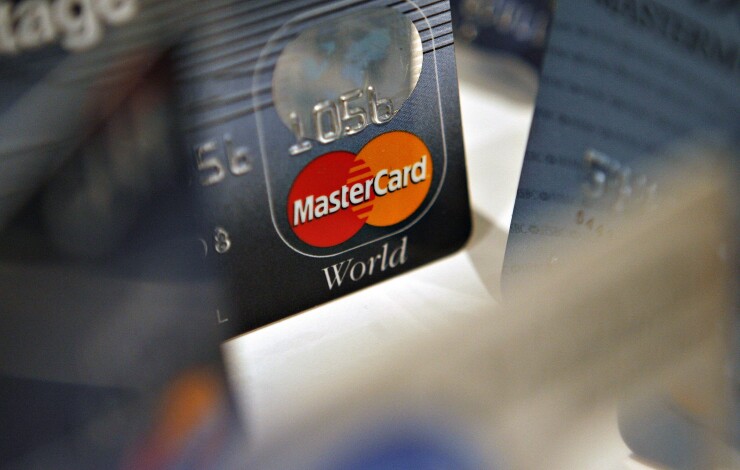Mastercard’s real-time incentive marketing initiative is an acknowledgement that requiring consumers to take action to seize a special deal won’t work as well in the mobile age.
The card brand on Tuesday said it’s entered partnerships with digital brands to automatically trigger rewards, removing steps such as enrolling and signing up for a service, or taking some other redemption action. In another nod to mobile commerce, the card brand also introduced cell phone insurance and enhancements to ID theft protection.
Mastercard World and World Elite cardholders will receive perks based on activity at certain brands, such as Lyft, Fandango, Boxed, and Postmates. The redemption is automatic. With Lyft, for example, cardholders receive a $10 credit for every five rides taken in a calendar month, with the credit automatically applied to the next ride. Fandango users get points worth about $5 for every two tickets purchased via the Fandango app or Fandango.com.

These types of scaled rewards have always existed in retail, but Mastercard is hoping to replace the promo-style marketing for mobile or web driven businesses with something that is directly embedded into the regular purchase.
“There are automatic redemption, no promo code, no special email,” said Amnah Ajmal, executive vice president of core products for North America for Mastercard.
Much like ride-sharing apps are designed to make the payment invisible, Mastercard’s rewards update is an attempt to make the incentives an organic part of the experience.
Mastercard’s partners at launch include companies that have significant competition that's bearing in. Lyft's primary rival
Card reward programs are also getting
“It’s instant gratification and easy delivery, and placing all of these benefits into the consumer’s lifestyle,” Agmal said.
The card brand is also adding insurance and an ID theft protection program called Enhanced ID Theft Protection.. World and World Elite cardholders will be eligible for cell phone protection when they charge their monthly telephone bill to their World or World Elite Mastercard. There’s a maximum liability of $600 per claim for World Cardholders and $800 for World Elite cardholders, and this covers stolen or damaged mobile devices. Cardholders who register for Mastercard ID theft protection will have access to a digital service to monitor their personal information, and access to a team of ID theft resolution specialists that are available at all times.
The program would appear to incentivize all qualifying cardholders to sign up World or World Elite status. Mastercard did not say if it would expand the program beyond World and World Elite cardholders, nor did it comment on additional brands that may be added beyond the launch partners deadline. Mastercard said its standard cardholders also have access to the Enhanced ID Theft Protection.
“As with all insurance, the concept is often more compelling than the coverage actually granted,” said Tim Sloane, vice president of payments innovation at Mercator. “As mobile devices have crammed more sensors and power into devices, those devices have become less repairable and need to be replaced no matter how minor the problem. This in turn drives up the insurers’ liability.”





